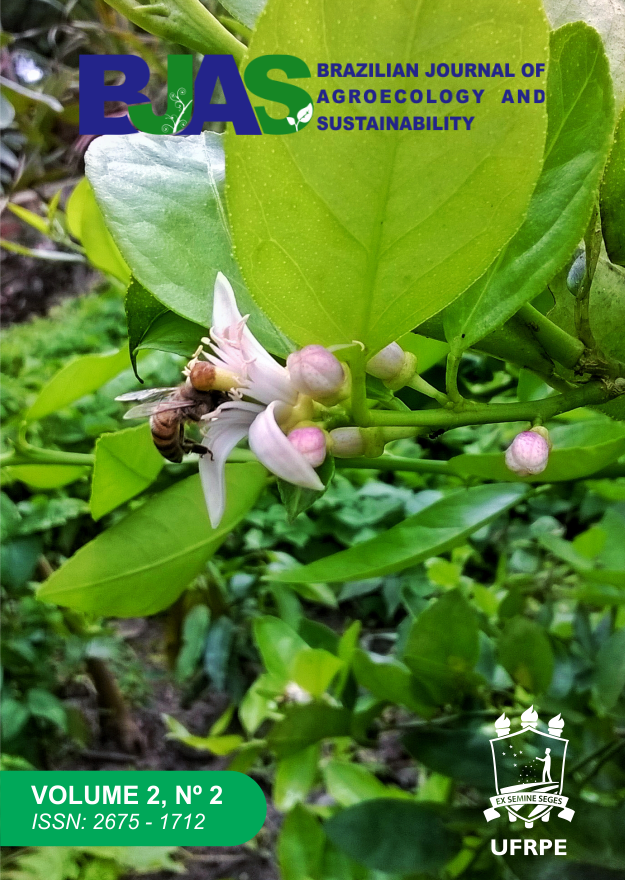Religious and cultural uses of plants promoting agroecological transitions in rural settlements in Brazil.
DOI:
https://doi.org/10.52719/bjas.v2i2.3789Abstract
Nature is a sacred space, where the tradition and rituals of Afro-Brazilian religions are celebrated, which performance is essential for the preservation of natural resources. Traditional communities that practice Candomblé in Brazil are settled on Nature, so they value and maintain biodiversity. Our objective was to study the spatial evolution of the land use by the traditional African-based community that occupies the Quilombo AnastáciaSite, as well as to understand how their customs – related to the maintenance of health and food -and their rituals help in the conservation of agrobiodiversity. The monitoring of the evolution of land use was carried out using LANDSAT satellite images and images from Google Earth software. According to the timeline (elaborated for 1997-2019), there was substantial increase in vegetation cover. In addition, the planting of native trees, food and medicinal species, as well as the use of agroecological practices (such as implementation of agroforestry systems), promoted diversification in the property. The Quilombo Site area favors the maintenance of the people's health and dietary habits, and the culture of this traditional African-based community guided the occupation of the soil, in order to benefit the conservation of agrobiodiversity.Downloads
Download data is not yet available.
Downloads
Published
2021-01-02
How to Cite
Aparecido Motta, Élvio, Fernandes, E. M. de S., Cavalieri Sais, A., Evangelista de Oliveira, R. ., & Sebastiani, R. . (2021). Religious and cultural uses of plants promoting agroecological transitions in rural settlements in Brazil. Brazilian Journal of Agroecology and Sustainability, 2(2). https://doi.org/10.52719/bjas.v2i2.3789
Issue
Section
Artigos
License
Copyright (c) 2021 Brazilian Journal of Agroecology and Sustainability

This work is licensed under a Creative Commons Attribution-NonCommercial-ShareAlike 4.0 International License.





